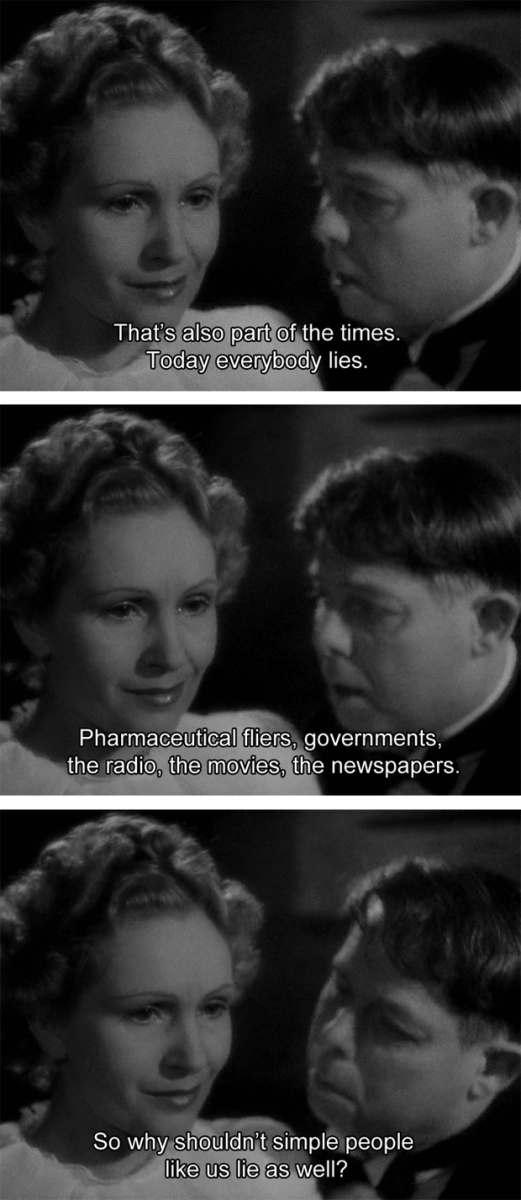An iconographic and text archive related to communication, technology and art.
☛ The Rule of the Game by Jean Renoir, France, 1939 @ 1:30:00. IMDb.
That’s also part of the times. Today everybody lies. Pharmaceutical fliers, governments, the radio, the movies, the newspapers. So why should’t simple people lie as well?
• • •
From the essay Alexander Sesonske wrote for The Criterion website in 2011:
[…] The Rules of the Game, a dazzling accomplishment, original in form and style, a comic tragedy, absurd and profound, graced by two of the most brilliant scenes ever created. It is also, in the words of Dudley Andrew, “the most complex social criticism ever enacted on the screen.” A total box-office failure in 1939, The Rules of the Game now ranks as one of the greatest masterpieces of world cinema. (read more)
The “rule of the game”, in Jean Renoir’s celebrated tragicomedy, is both that of the “haute bourgeoisie” and of love. In the scene depicted above, Christine de la Cheyniest (played by Nora Gregor) just learned that her husband has been having an affair since even before they were married: “For three years my life was built on a lie”, she exclaims. All the servants knew, including her personal maid, but they never told anything in order to avoid hurting her. That’s the moment when one of her most loyal friend, Octave, played by Jean Renoir himself, tells her about one of those “rules”: everybody lies. (Another one of those rules has to do with the fall of the heroic figure).
Through the instability of love relations, Renoir manages to show the frail foundation of a social class that is about to collapse. One could probably read Renoir’s delicate portrait as an allegory of the difficulties inherent to human affairs of larger scale (even though the film “lays no claim of being a social study”). The film was made in 1939, on the brink of the Second World War. This planetary catastrophe would indeed expose the problem of human coexistence in a way that remains unprecedented, and unresolved.
- By Philippe Theophanidis
- on
- ― Published in Art, Communication, Movies
- Tagged: bourgeoisie, couple, France, globalization, Jean Renoir, lie, love, politics, war, World War

